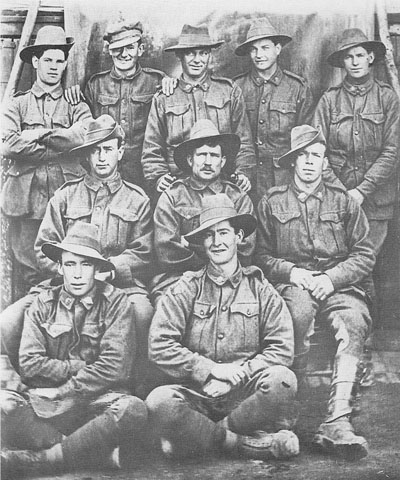Mates
This photograph of Australian soldiers was taken during the First World War. It’s not particularly unusual: just a group of mates getting together to record a memento, perhaps after a weekend’s carousing in the fleshpots of Cairo or Paris. Mateship is a important concept in Australian culture. The OED defines it as ‘The condition of […]


